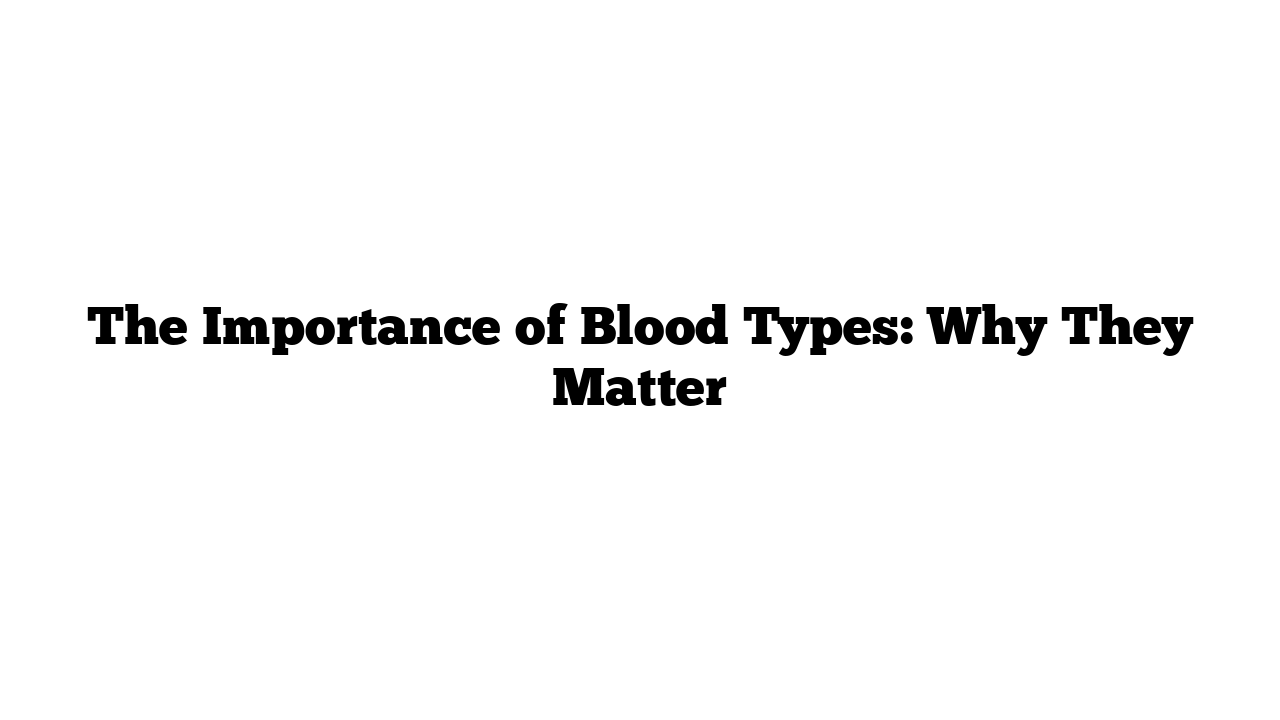It’s often said that despite humanity’s many conflicts, we all bleed the same. While this is a comforting thought, it isn’t entirely accurate. Our blood actually comes in different varieties, and understanding these differences is essential for our health.
What Makes Up Our Blood?
Our red blood cells contain a crucial protein called hemoglobin. This protein binds to oxygen, allowing our cells to transport it throughout the body. But there’s more! Our red blood cells also have special proteins on their outer membranes called antigens. These antigens play a vital role in our immune system.
The Role of Antigens
Antigens communicate with white blood cells, the body’s defense against infections. They act as identifying markers, helping the immune system recognize your body’s own cells. This prevents it from mistakenly attacking them as if they were foreign invaders.
There are two main types of antigens: A and B. These antigens determine your blood type, but how do we end up with four distinct blood types from just two antigens?
How Blood Types Are Determined
The answer lies in our genes. Blood types are determined by three different alleles (variations of a gene). The A and B alleles code for A and B antigens, respectively. The O allele does not code for any antigens. Each person inherits one allele from each parent, giving us two alleles that determine our blood type.
When these alleles are different, one can dominate the other. Here’s how it works:
- AA results in Type A blood.
- BB results in Type B blood.
- AB results in Type AB blood, due to codominance of both alleles.
- OO results in Type O blood, as both A and B antigens are absent.
Understanding both parents’ blood types can help predict the blood type of their children.
Why Blood Types Are Crucial
Knowing your blood type is critical, especially in blood transfusions. Administering the correct blood type can be a matter of life and death. For example, if someone with Type A blood receives Type B blood, their antibodies may reject the foreign antigens, potentially leading to dangerous complications.
People with Type AB blood produce both A and B antigens, meaning they can safely receive blood from any type. This makes them universal recipients. Conversely, those with Type O blood do not produce A or B antigens, making them universal donors. However, their immune systems will produce antibodies that can reject any other blood type.
The Complexity of Blood Transfusions
Matching blood donors and recipients is not just about A and B antigens. It also involves the Rh factor, named after the Rhesus monkey. Rh+ means the D antigen is present, while Rh- means it is absent. This factor can complicate blood transfusions and pose risks during pregnancy.
For instance, if an Rh- mother carries an Rh+ child, her body may produce antibodies that attack the fetus. This condition is known as hemolytic disease of the newborn.
The Cultural Beliefs and Variations
Some cultures link blood types to personality traits, although this idea lacks scientific backing. While the proportions of blood types vary between populations in the USA and beyond, scientists are still unsure why these differences exist. They may provide protection against blood-borne diseases or arise from random genetic drift.
Interestingly, different species have distinct sets of antigens. For example, dogs have thirteen different blood types, showcasing a greater variety compared to the four main types in humans.
Understanding blood types is more than a matter of genetics; it can save lives and promote better health. So next time you think about blood types, remember that they are not just letters but vital components of our biological makeup.
For more information about blood types and their significance, you can check out the following resources:
